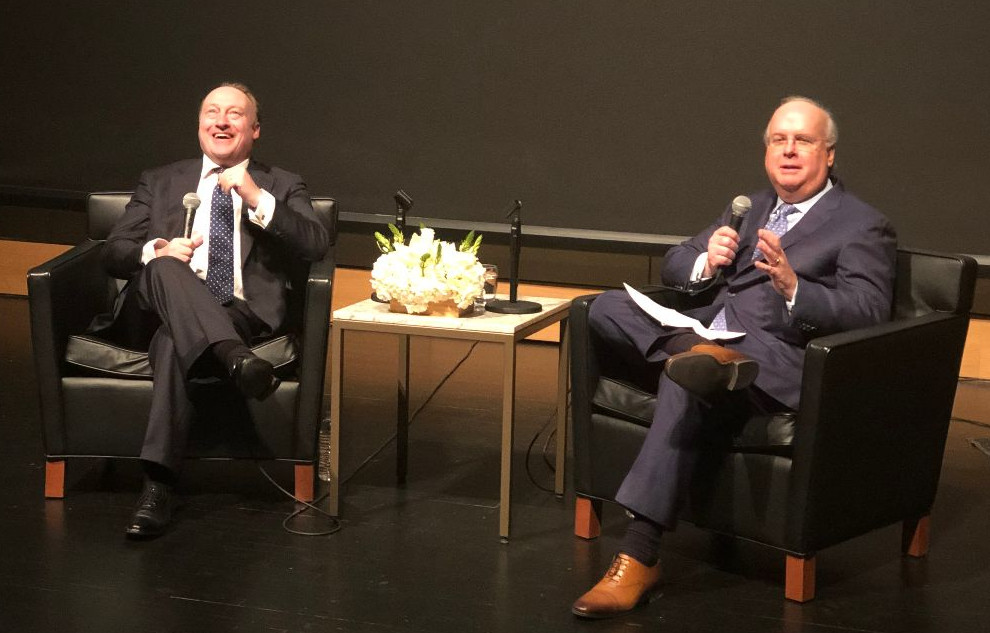
At latest count there are 1009 biographies of Winston Churchill. Why, asked Republican strategist Karl Rove, do we need another one?
He asked this question of historian Andrew Roberts in an appearance last night in Austin. Remarkably, Roberts had a good reason to justify his new 1100-page biography of the man widely regarded as the greatest Englishman of all time.
“There is a huge cornucopia of new information about Churchill.” Roberts explained that in the last decade 41 sets of papers have been deposited in the Churchill archives, little of which has been mined by any other biography. This includes verbatim accounts of the War cabinet, those ministers of state who were deeply involved the the daily operations of World War II.
But topping all the other new archives are the private diaries of King George VI. Andrews revealed that Queen Elizabeth gave him exclusive rights to study these diaries of her father for the first time. He described them as “ a fantastic resource. They are kept in the Round Tower in Windsor Castle, and show that Churchill trusted the King with all the secrets of the war.”
The archives there are so closely protected that whenever Andrews went to the washroom, he “was followed by an attendant with white gloves” to ensure nothing went missing!
“What they told me most,” Andrews confided, was Churchill’s frustration of the United States not getting involved the war against Hitler. He found the administration of Pres. Roosevelt was moving at glacial speed. “Churchill used the King as a sounding board as a way of venting his frustration over this.”
Employing all this newly available material ensures, said Roberts, that “nearly every page has information not in any previous biography.”
Churchill knew from an early age that he was destined to save England, and it was this sense of purpose that enabled him to stay calm during the greatest crises of World War II. He admired Napoleon, Roberts said, going so far as to ask Charlie Chaplin to play Napoleon in a movie. Both leaders were soldiers and they shared a sense of destiny, but Churchill ended on the right side of history, while Napoleon lost.
He saw Hitler as one of a series of threats to England, beginning with the King of Spain who sent The Armada to defeat the island nation in 1588. He was followed by King Louis XIV of France, Napoleon, the German Kaiser of World War I and Hitler in WW II. “He spotted in Hitler the fanaticism he had seen in religious fanaticism,” Roberts explained. “No other British politician of the 1930s had encountered fanaticism,” giving Churchill both the historical perspective and the first-hand experience to realise the danger Hitler posed.
Andrews interspersed his answers to questions posed by Rove with some of Churchill’s favourite jokes, also reminding the audience at the University of Texas that his speeches cover 8000 pages. “He has given us phrases that will live as long as the English language lives.”
For future public talks visit the website of Pres. Johnson’s Library: www.lbjlibrary.org.
Photo by C. Cunningham
Those who would like to read my reviews of several books about Churchill can visit the sister website: www.sunnewsmiami.com